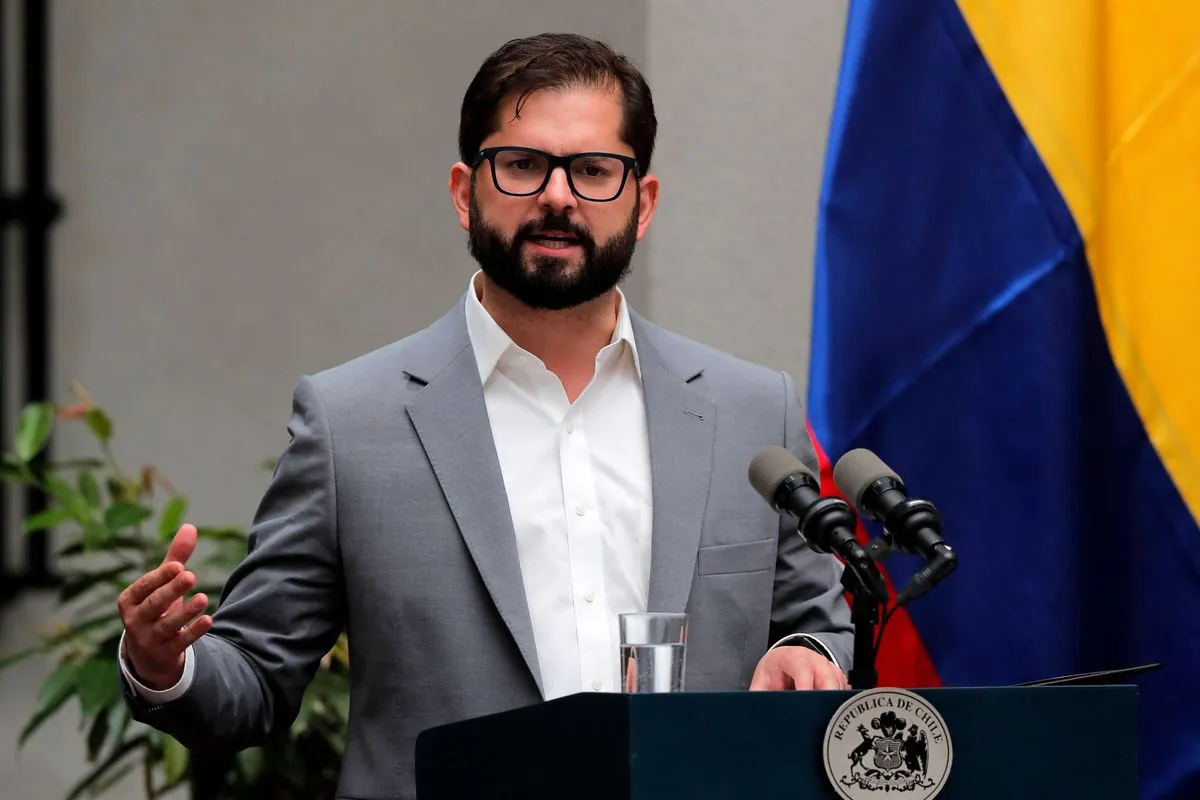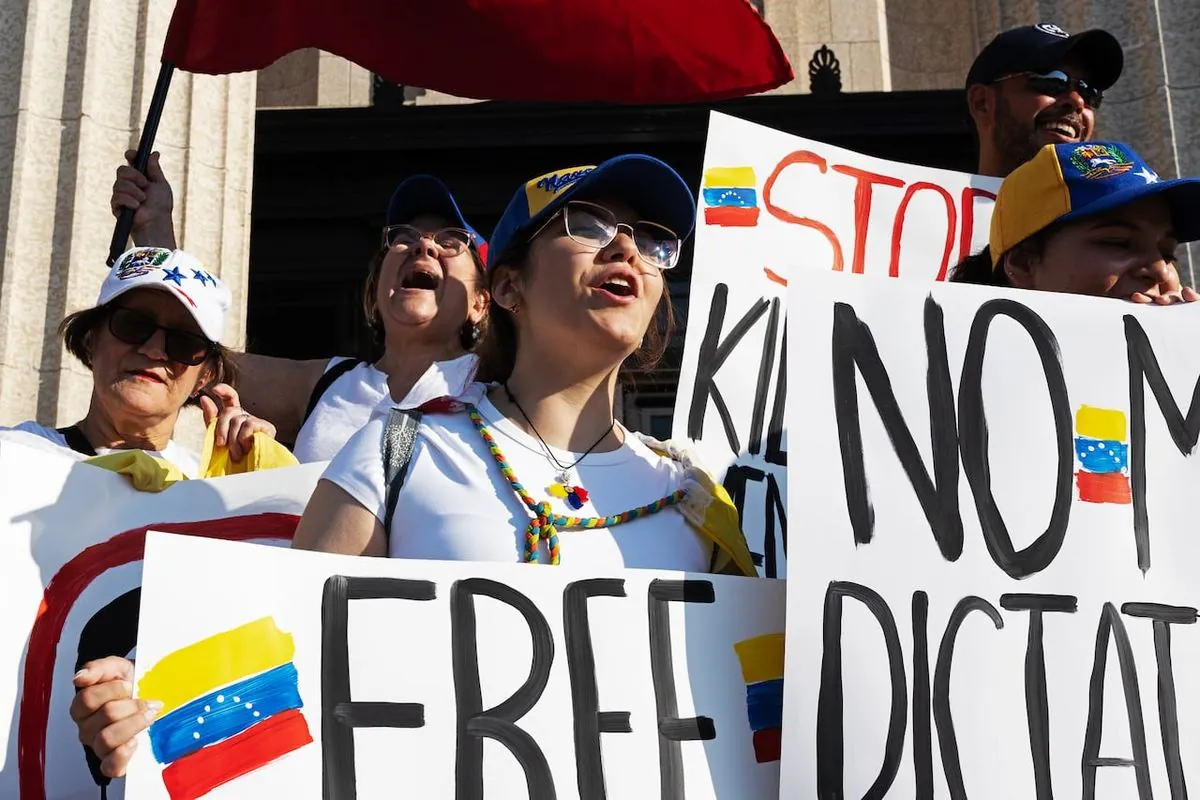Chilean President Rejects Maduro's Claim of Victory in Venezuelan Election
Chile's President Boric refuses to recognize Maduro's self-proclaimed win in Venezuela's contested election. He joins other Latin American leaders in demanding transparent results and condemning human rights violations.

Gabriel Boric, Chile's president, has taken a firm stance against Nicolas Maduro's claim of victory in Venezuela's recent election. The Chilean leader's position aligns with several other Latin American countries, reflecting a growing regional concern over the legitimacy of Venezuela's electoral process.
On August 7, 2024, Boric stated, "I have no doubt that Maduro's government has attempted to commit fraud in Venezuela's election." He emphasized that he would only acknowledge results verified by independent international organizations, highlighting the importance of transparency in the electoral process.
The contested election, held on July 28, 2024, has sparked controversy across the region. While some nations, including Guatemala, Argentina, and Peru, have echoed Boric's skepticism, others like Brazil and Mexico have called for the release of complete vote tallies.
Boric also accused Maduro's administration of committing serious human rights violations, including suppressing the right to protest and persecuting opposition leaders. These allegations are not new, as Venezuela has faced international sanctions due to similar claims in recent years.

Venezuela's political crisis, ongoing since 2013, has had far-reaching consequences. The country, once among Latin America's wealthiest due to its vast oil reserves, has experienced hyperinflation and economic collapse. This turmoil has led to a mass exodus of Venezuelans seeking better living conditions elsewhere.
It's worth noting that Boric, who became Chile's youngest president in 2022 at age 36, represents a new generation of Latin American leaders. His stance on Venezuela reflects Chile's commitment to democratic principles since its return to democracy in 1990 after the Pinochet era.
While Boric has not explicitly endorsed opposition candidate Edmundo Gonzalez's claim of victory, his refusal to recognize Maduro's self-proclaimed win underscores the complexity of Venezuela's political landscape. The opposition in Venezuela has struggled to unite effectively against Maduro's government, which has been accused of controlling the country's electoral council.
As the situation unfolds, the international community continues to watch closely, with many calling for a return to democratic norms and respect for human rights in Venezuela.
"I have no doubt that Maduro's government has attempted to commit fraud in Venezuela's election."
This ongoing crisis serves as a reminder of the challenges facing democracy in the region and the importance of international solidarity in upholding democratic principles.


































